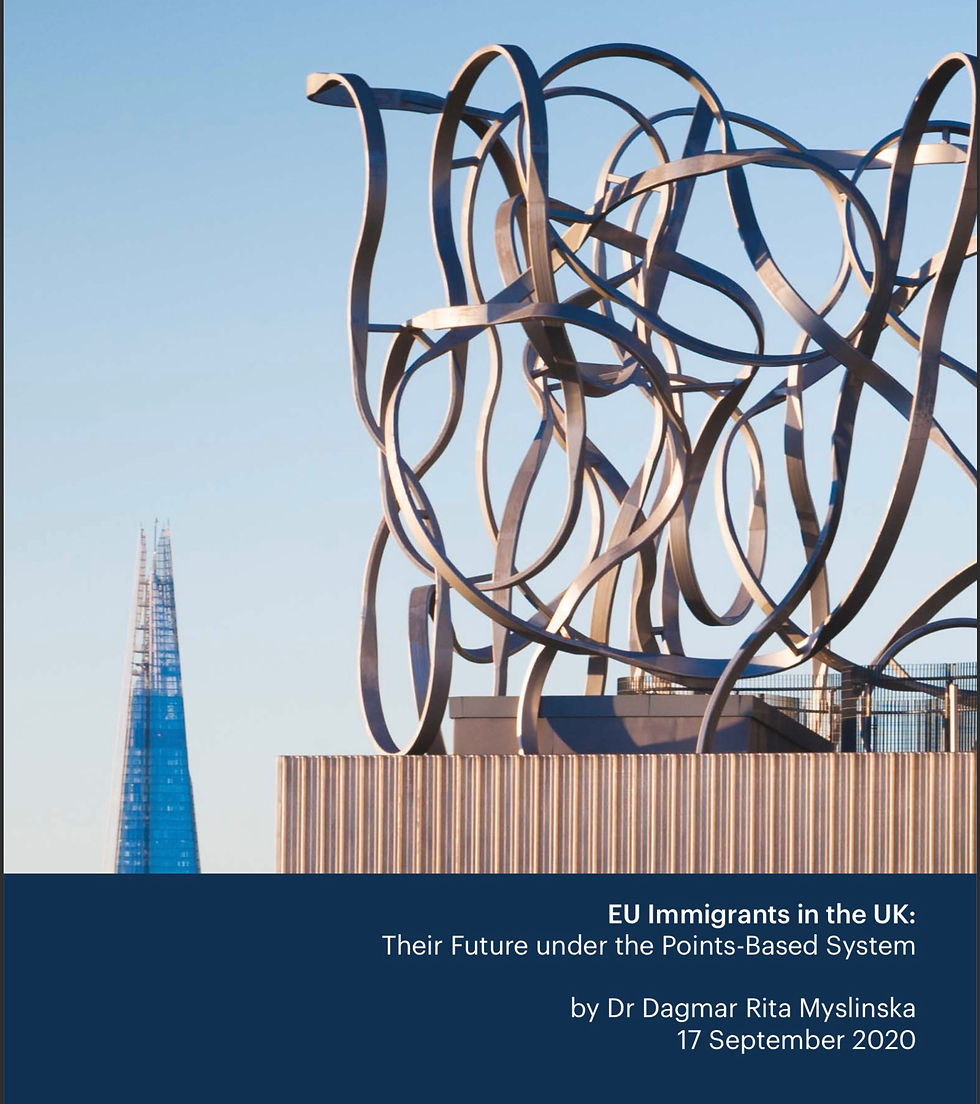Loss of collaborative research programmes and status of EU academic staff major challenges for UK Un
- Dr Dimitrios Giannoulopoulos
- Jun 25, 2017
- 2 min read

Brunel University London Deputy-VC (Education & International), Prof Andrew George, was interviewed by the UK correspondent of Spain's International News Agency, Agencia EFE, Guillermo Ximenis, on behalf of BiE, on Brexit's ramifications for UK higher education:
How will British universities cope with the loss of european shared programs and the future difficulties to recruit european academics? Are academics already thinking on leaving the UK ahead of Brexit?
The loss of collaborative programmes across the EU is a major issue for UK universities. This is not just because of the funding of these programmes, but the ability to build multinational teams of researchers that enable high quality research with a real impact on important research questions. The EU funding provides glue for such collaborations, as well as a framework for us to work together. However, UK researchers are international in their outlook. They will continue to find ways of collaborating with EU colleagues (and indeed with those from around the world). We would hope that we could retain membership of EU research organisations as other non-EU states do. We are also continuing to participate in networks of European universities – such as YERUN https://yerun.eu/.
At Brunel University London we attract academics from Europe and from around the world. Clearly, the EU makes movement of researchers and academics easier. I expect that it will prove more difficult to attract Europeans to come to the UK, though many will continue to come as a result of the strength of the UK university system. We will also see some researchers leave, not necessarily because of changes in the rules but because of the perception that the UK no longer welcomes them. This is unfortunate and incorrect. UK universities are united in their appreciation and support of researchers and academics from outside the UK. They enrich our university communities, support our education and contribute to research. Academics from around the world continue to be welcome and valued in UK universities.
One if the issues that we need early resolution on is the status of non-UK EU citizens currently resident in the UK (and indeed of UK citizens resident in the rest of the EU). Both the British government and many EU leaders have said that it is a priority that there is an early resolution of this issue, and we must encourage everyone to work for this.
Will British companies struggle to recruit skilled workers after Brexit?
The UK government has said that British companies may continue to recruit skilled workers from outside the UK (which will include the rest of the EU after Brexit). The impact of this is going to dependent not only on Brexit but perhaps more importantly on what the UK immigration policy is. That will vary – depending on who wins the election next week. It is, however, possible that we will have a more restricted immigration policy than present (when counting migration from the EU and the rest of the world). We need to develop our UK education system to ensure that British citizens have the necessary skills to contribute to high level jobs to help bridge this skills gap. We need to continue to be open to people from around the world that can both contribute to our economy and also learn skills while they are here.





コメント